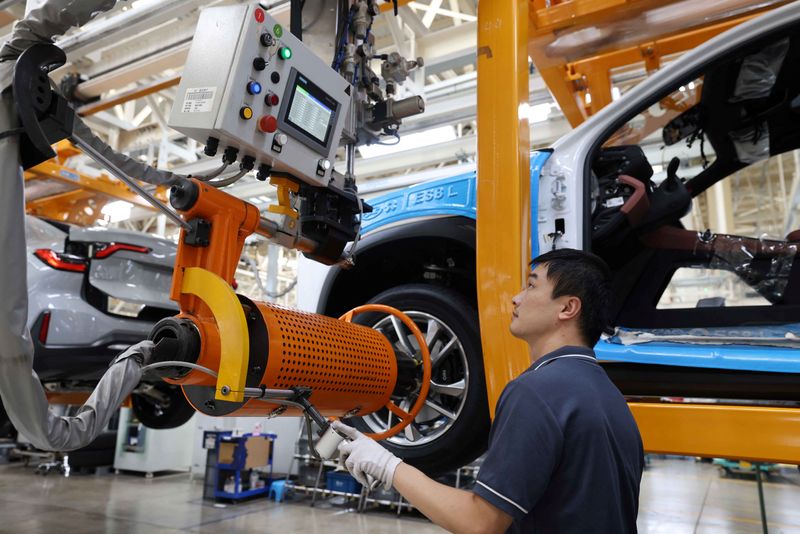BEIJING (Reuters) - China's services activity picked up in May, a private-sector survey showed on Monday, as a rise in new orders shored up a consumption-led economic recovery in the second quarter.
The Caixin/S&P Global services purchasing managers' index (PMI) rose to 57.1 in May from 56.4 in April. The 50-point mark separates expansion from contraction in activity.
The survey, which was based on responses collected from May 12-22, contrasts with the official PMI released last week that showed a slower pace of expansion in the services sector.
"After a sharp but unbalanced rebound in 1Q23, China's consumption recovery is entering the second stage, which will be more endogenous and powered by broader job gains," Morgan Stanley (NYSE:MS) analysts said in a note on Sunday.
Bruce Pang, chief economist at Jones Lang LaSalle, said the different survey sizes might explain the discrepancy between the Caixin and official PMI readings. The Caixin PMI surveys around 650 private and state-owned services companies while the official PMI surveys 4,300 companies.
"The decline in the official index suggests that larger firms and those located inland are facing the greatest headwinds," said Sheana Yue, China economist at Capital Economics, adding a significant fall in the construction component pulled the official index down.
Some economists warn pent-up demand for in-person services may fade due to slowing income growth and mounting unemployment, raising headaches for policymakers already struggling with weak foreign demand and an uneven post-COVID recovery.
The Caixin survey showed service companies reported a rise in new business last month when the first May Day holiday following China's COVID reopening boosted orders for hotels, restaurants and travel agencies.
Increased workloads led firms to grow their headcount for the fourth consecutive month, although the speed of job creation slowed.
Average prices charged by service companies rose by the fastest since February 2022.
The survey also indicated that capacity pressures persisted, as highlighted by sustained growth in outstanding business.
Caixin/S&P's composite PMI, which includes both manufacturing and services activity, picked up to 55.6 from 53.6 in April, marking the quickest expansion since December 2020.
While firms in the services sector remained upbeat about business in the next 12 months, the level of optimism eased to the lowest since December 2022 when Beijing lifted anti-virus curbs.
China's economy rebounded faster than expected in the first quarter but lost momentum at the beginning of the second as April data broadly undershot forecasts.
Factory activity in May shrank faster than expected on weakening demand.

"In general, it remains a prominent feature of the Chinese economy that the services sector is stronger than manufacturing," said Wang Zhe, senior economist at Caixin Insight Group.
"This divergence highlights that economic growth is lacking internal drive and market entities lack sufficient confidence, underscoring the importance of expanding and restoring demand," he said.